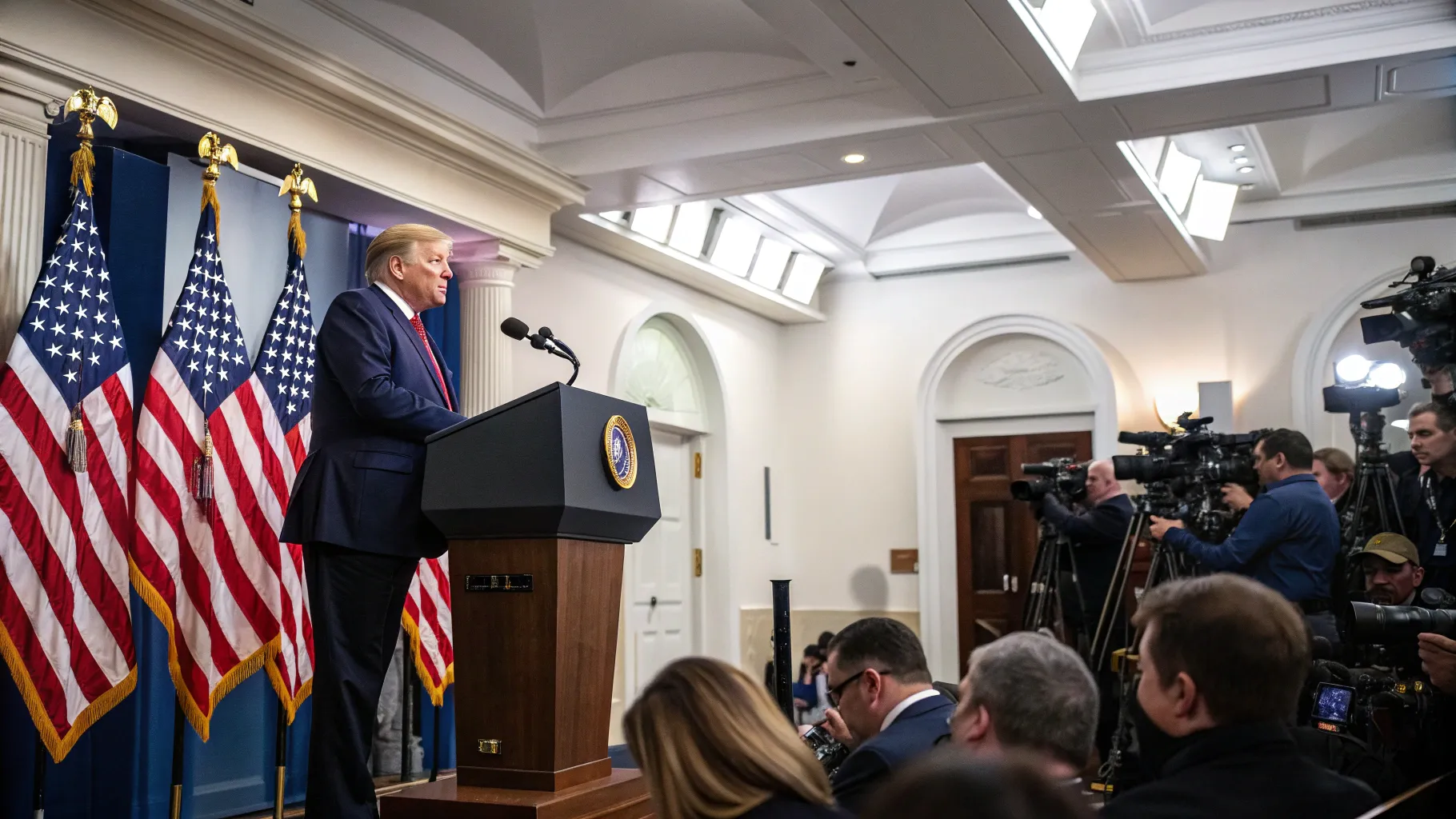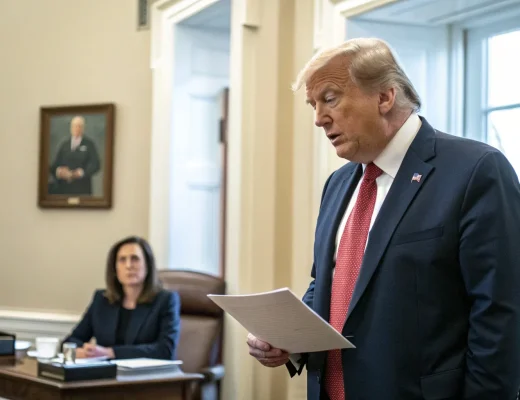President Trump
announced on Monday that he would impose a 100% tariff on movies made outside the United States, a sweeping proposal with significant trade and cultural implications. The statement, posted on his social media platform, signals an important shift in film and media policy that could impact theaters, streaming services, studios, and U.S. trading partners.
“I will be imposing a 100% tariff on any and all movies that are made outside of the United States.”
The pledge arrives as debates over tariffs return to the center of national politics. It also raises urgent questions about how such a policy would function and who would bear the costs.
Background: Tariffs and the Film Business
Tariffs are taxes on imports, typically applied to goods such as steel, aluminum, and cars. The Trump administration utilized them extensively from 2018 to 2020, particularly on Chinese products. The
Biden administration has retained and expanded certain measures in targeted areas, such as clean energy initiatives. Applying tariffs to motion pictures, however, would be unusual and complex.
Movies flow across borders through theatrical distribution, digital purchases, and streaming. The industry mixes goods and services, from physical prints and equipment to licensing rights. Trade rules treat these channels differently. International agreements under the World Trade Organization include commitments on services, while copyright and licensing sit within separate legal regimes.
The U.S. is also a top exporter of filmed entertainment. American studios generate a substantial
share of their revenue abroad. Any new barriers could invite retaliation against U.S. content in key markets such as Europe and Asia.
Policy Proposal and Practical Hurdles
Trump did not outline legal authority or timing for the measure. Past administrations have relied on statutes such as Section 232 for national security or Section 301 for addressing unfair trade practices. Applying those tools to films would trigger legal review and likely face court challenges.
Defining an “imported” movie would be complicated. Many “foreign” titles are co-productions with U.S. financing or feature U.S. talent. Streaming
platforms license and co-finance global content, often with a mixed ownership structure. The government would need to decide whether tariffs apply to physical media, digital downloads, or licensing fees.
Theaters, distributors, and platforms would need new compliance systems. That could add costs and delays. Consumers might see higher ticket prices or fewer foreign releases if companies pass on the tariff.
Industry Impact and Market Effects
Foreign-language films represent a small slice of the U.S.
box office, but imported English-language titles, festival winners, and anime have devoted audiences. A 100% surcharge would double import costs and pressure distributors’ release plans.
For
streaming services, the effect could be broader. Global catalogs rely heavily on popular shows and films produced outside the U.S. Tariffs could force the renegotiation of licensing
deals or reduce the offerings. Smaller niche platforms that focus on international cinema would be hit first.
- Ticket prices for imported films could rise.
- Release schedules could shrink as distributors avoid risk.
- Streaming libraries might narrow, especially for non-U.S. titles.
- Retaliation risk could affect U.S. films overseas.
U.S. producers could see
short-term gains if foreign competition dips. Yet the global box office for American films could face payback if partners respond with their own measures.
Legal and Diplomatic Questions
Trade lawyers say that any such tariff scheme would likely
face challenges under U.S. law and international trade commitments. Content regulations can also raise First Amendment concerns if they appear to target speech based on origin. Even if crafted to tax transactions rather than content, opponents would argue the move harms
cultural exchange and consumer choice.
Diplomatically, allies with strong film sectors—such as Canada, the United Kingdom, France,
South Korea, and Japan—would likely object. Past tariff disputes have led to quick countermeasures, often in politically sensitive industries.
What to Watch
Key details remain unknown. The proposal lacks a legal basis, a timeline, and an enforcement plan. Industry groups will seek clarity on the scope, including whether co-productions are covered and how streaming services are treated.
Congress could weigh in if legislation is needed, though presidents have used existing statutes to act unilaterally. Courts may be asked to block the policy if it advances.
Markets will look for signals from studios, exhibitors, and platforms on contingency plans. Investors may reassess companies with heavy exposure to international content pipelines.
Trump’s statement signals a
stricter stance on cultural imports and sets up a clash between trade policy and media markets. The next phase will hinge on legal strategy and international reaction. If the plan advances, expect higher costs for foreign films, narrower catalogs, and new friction with U.S. trading partners. If it stalls, the debate will still shape how leaders discuss trade, culture, and the cost that viewers incur.





